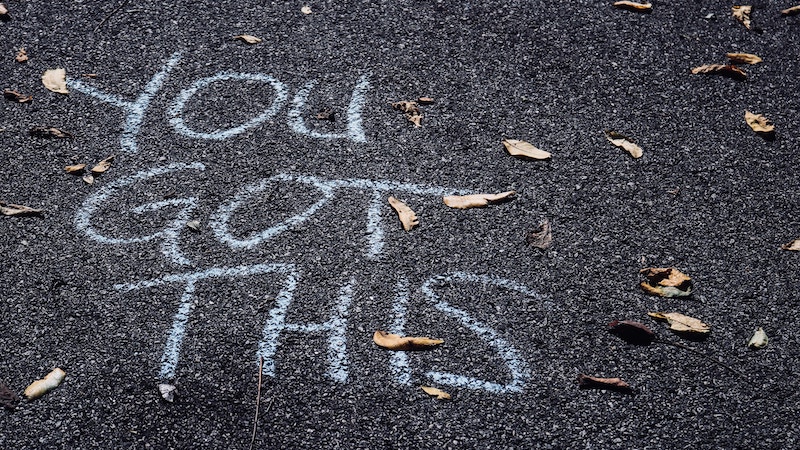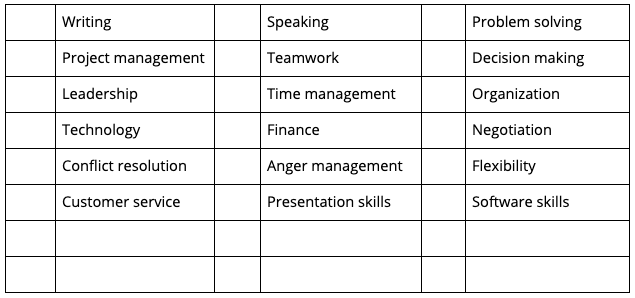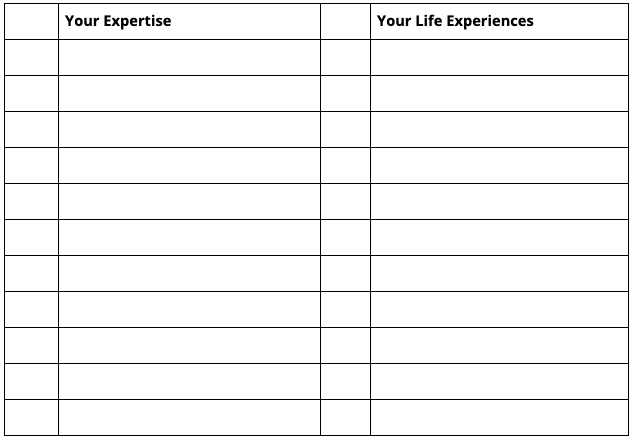Know and Appreciate Your Strengths and Skills
Episode #2 of the course How to improve your self-confidence by Patricia Haddock
Welcome to today’s lesson.
In our last lesson, we focused on a growth mindset for boosting self-confidence. Today, we’re looking at your skills and achievements.
Did your parents ever tell you to not brag and instead be humble and modest?
It’s not bad advice, especially if you have ever been around someone who, in their own opinion, is the best, the greatest, and the most of everything.
It is bad advice, however, when you underestimate your abilities and fail to acknowledge or even recognize them.
It’s easy to assume that everyone is good at the same things we are good at. For example, I love to cook. I understand seasoning and flavor and can create a tasty plate of food. It seemed so simple to me, I assumed everyone could do it. When people started asking me questions about cooking, I realized that not everyone could do it without practice and guidance. I came to appreciate my skill in the kitchen. This boosted my self-confidence as a home cook.
Today, we’re going to look at your abilities and help you discover skills that you never knew you had in order to help you boost your own self-confidence.
A skill is something that you know how to do with a level of expertise. It may come naturally to you or you may have learned it. In the next section, you will look at the business skills you have and are good at.
Your Business-Related Skills
This table lists skills that are valued in the business world, whether you are a career professional or an entrepreneur.
• Put a checkmark in the box next to the skill if you have moderate to excellent ability in it.
• Leave the box blank if you have little or no ability.
• Add other business skills you have that are not on the list, and check them too.
Next, let’s focus on areas where you have expertise or life experience.
Your Expertise and Life Experiences
You have a wide range of abilities based on your life experiences, hobbies, and interests. These are skills that most of us take for granted. For example, you probably know how to drive. That’s a skill that requires focus, coordination, problem-solving, and much more. But I bet you’ve never appreciated what it takes to enter a freeway where everyone else is driving 75 miles an hour or to parallel park on a steep hill.
• In each column, list your expertise and experiences. All these things reveal your skills and abilities, many of which you take for granted.
• Under Expertise, include things like sports, hobbies, interests you have studied, and so on. For example, under Expertise, I would list cooking.
• Under Experience, include what you have experienced in your life, such as getting married, graduating from college, raising children, and so on. For example, under Experience, I would list caregiving.
• Use a second piece of paper if you need more room.
Look at your lists, and put a checkmark next to those items that give you a sense of pride and accomplishment.
Now, give yourself credit for your existing abilities and knowledge.
1. Review every item on both tables that you checked as having skill in it.
2. Complete this sentence: “I know a lot about and have skills in [list everything you checked on both tables].”
Just remembering what you do well and giving yourself credit can boost your self-confidence. Tomorrow, you will learn an easy way to keep your confidence strong in just a few minutes every week.
See you tomorrow.
Patricia
Recommended reading
Ten Actionable Steps to Discover Your Unique Skills
Recommended book
Share with friends



